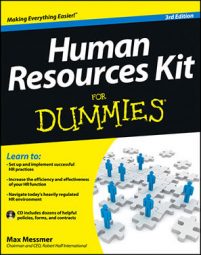A succession plan is important, but it’s not enough. That’s because a plan doesn’t develop your employees. They need experience, advice, mentorship, and feedback from you.
Your reviews, check-ins, and performance metrics are essential to tracking progress and keeping everyone accountable. Here are a number of barometers that can prove helpful in determining what works and what may warrant reconsideration in your succession planning efforts:
Are your new leaders successful? Are succession candidates who have been newly installed as leaders meeting objectives and goals in their new jobs? Besides asking for a self-evaluation from the new leader himself, also talk to the people he works with to gauge their confidence level in his direction.
If you identify gaps or problems in the performance in new leadership, revisit your succession process to pinpoint the source of the shortfall. Was he ill prepared for the role, or did you overestimate his leadership potential?
What do participants themselves think? Consider making succession participants part of your evaluation process. What worked well for them? What was most impactful? What was least useful?
Are new leaders staying on? It’s just as important to retain talented new leadership as it is to develop it. Track leadership retention rates. If your best people are leaving for other companies, determine whether your compensation package is adequate by benchmarking against similar companies in similar industries and markets.
Also, consider if the responsibilities of the new position are sufficient to engage highly talented leaders. Boredom or a lack of opportunity will send your best and brightest out the door.
Is the flow of candidates consistent? Succession planning should be an ongoing process. Are your efforts providing the business with a reliable supply of candidates, or are there occasional gaps that could pose a problem if an important position suddenly became available? Review your program to see if you can make it more consistent across the board.
Make evaluation a habit. Just as succession planning shouldn’t be an every-so-often consideration, so, too, should your evaluation be an ongoing responsibility. Not only does that allow you to maintain close touch with the results of your program, but it also lets you identify issues that may be impeding overall success. That gives you the opportunity to tweak elements of the program before they grow into more significant problems.
Even if replacing a top job seems too far down the road to be important today, don’t neglect succession planning. Life happens — and you need to expect the unexpected.

